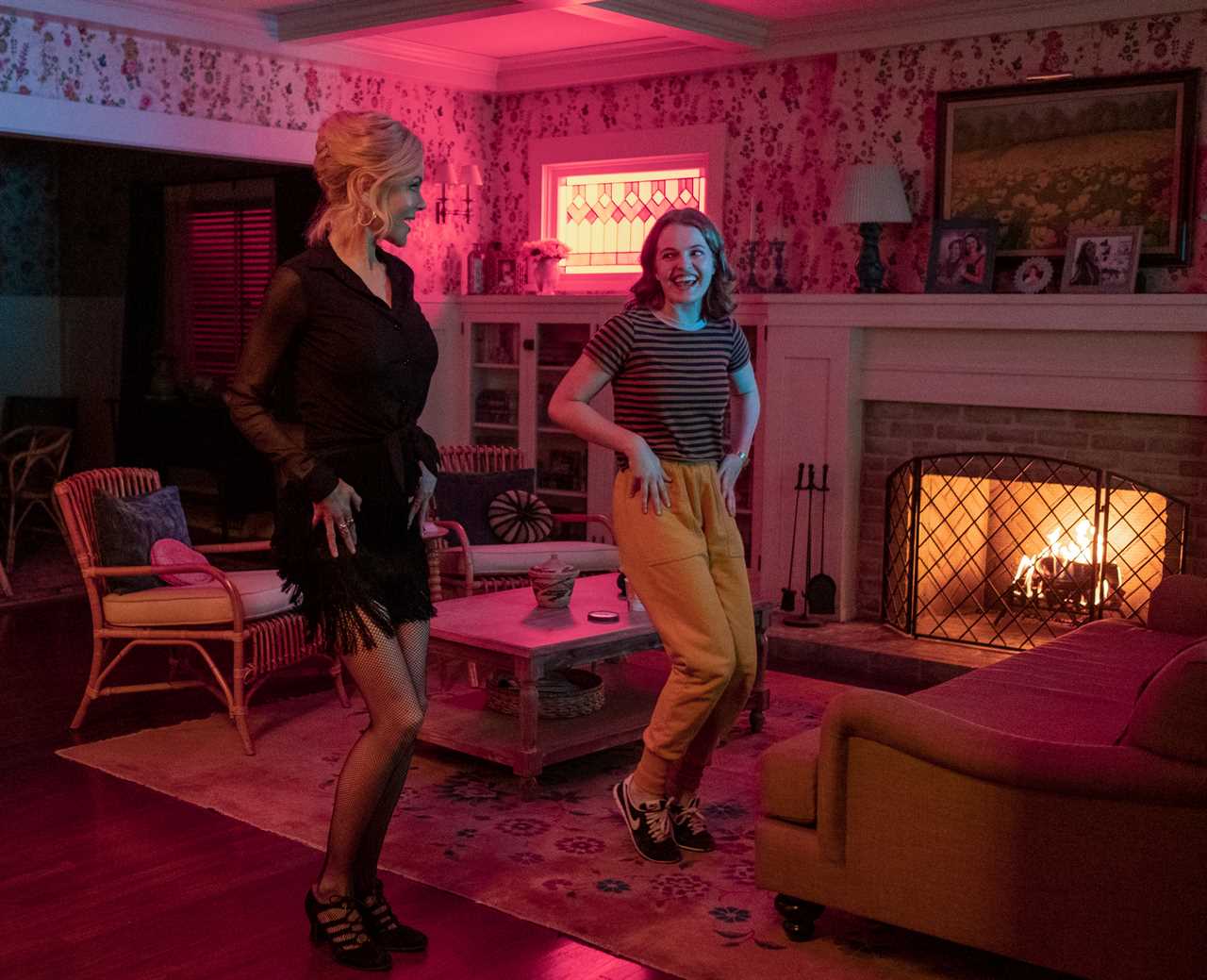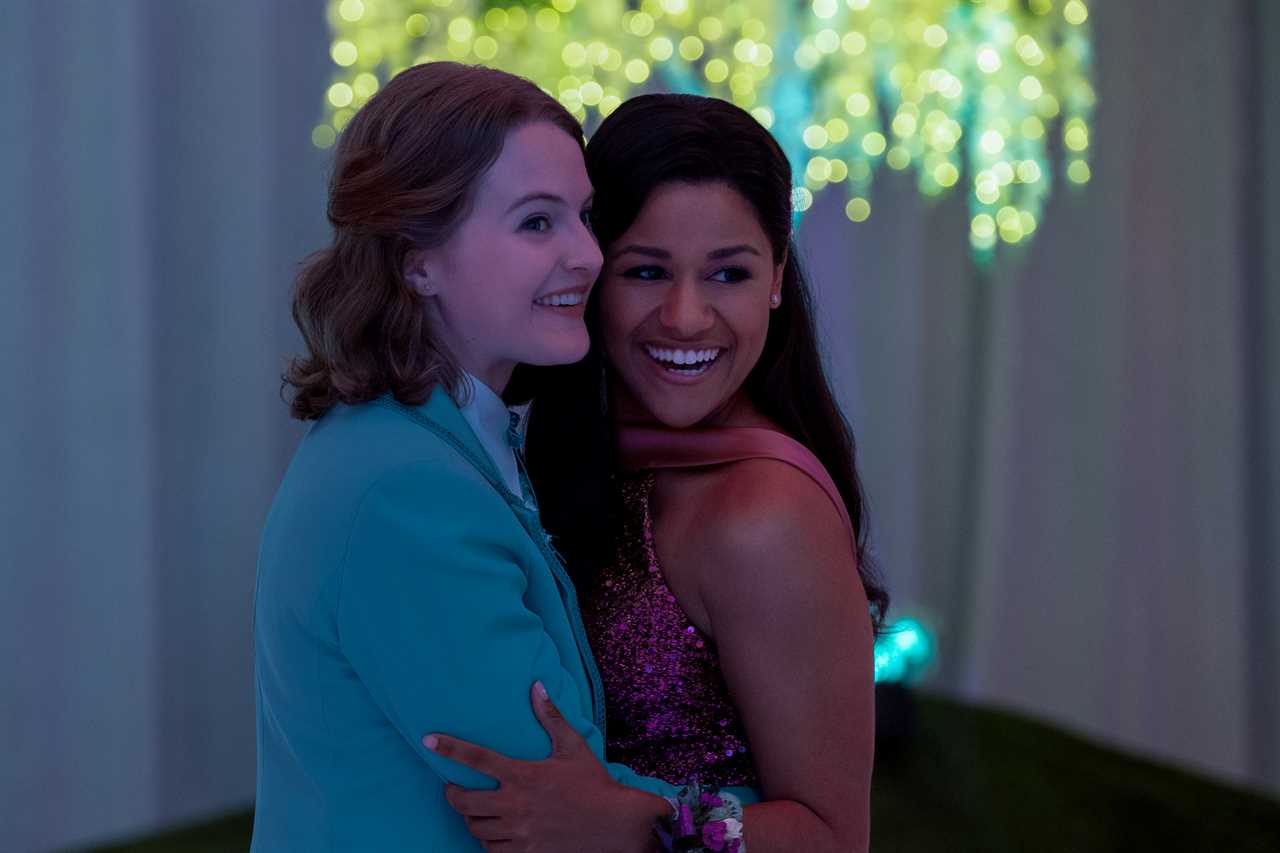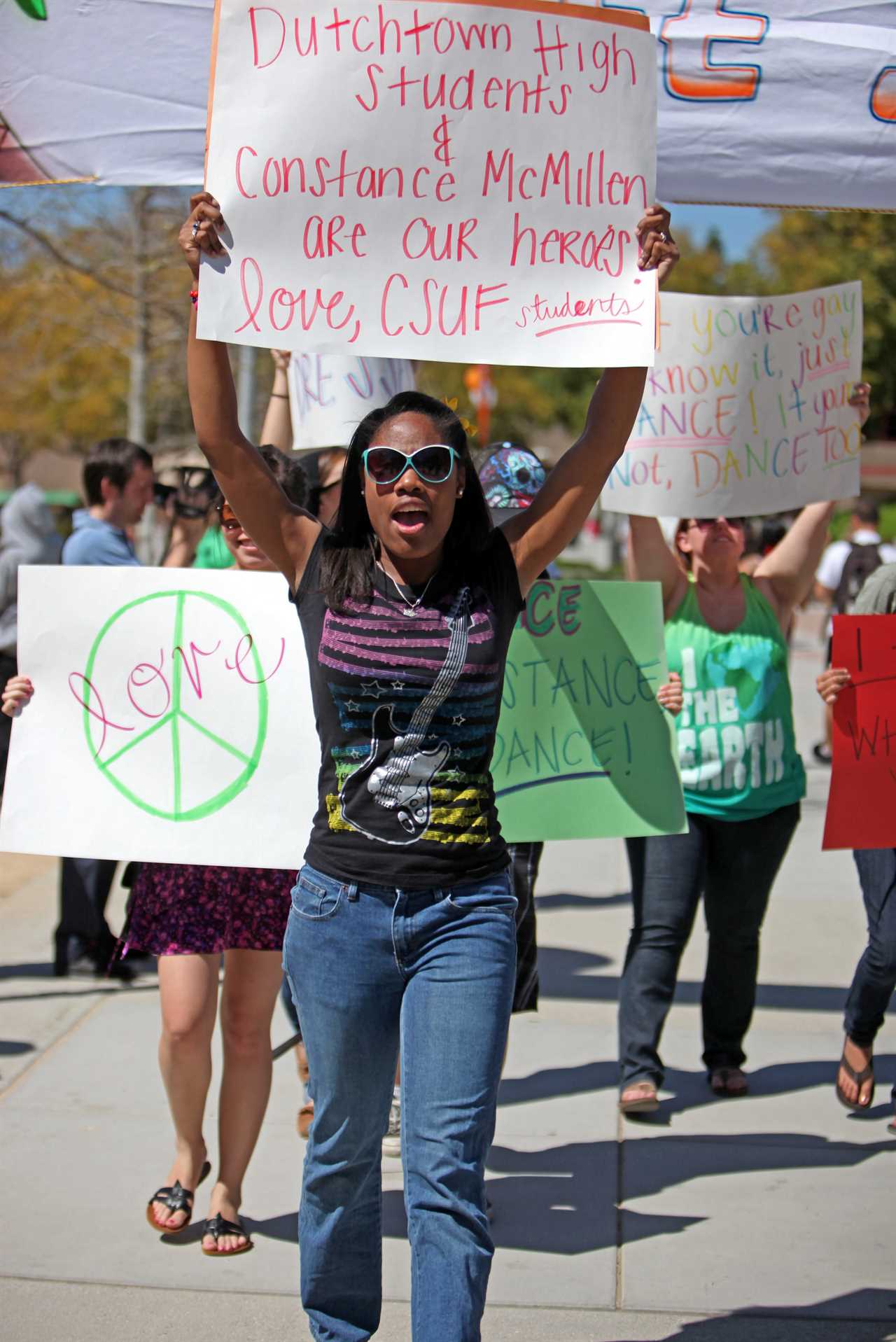LIKE every schoolgirl, Constance McMillen wanted to dance the night away at her school prom.
But when she asked to go with the girl she was dating, her teachers not only refused to let her, they cancelled the whole event.

She was then shunned and bullied by her classmates in rural Mississippi, with one pupil even printing a T-shirt that read “Thanks, Constance, for ruining prom.”
The cruel students even secretly organised an alternative end-of-year bash without telling her.
Now Constance is having the last laugh as her story has inspired a joyous musical starring Meryl Streep, Nicole Kidman and James Corden.
In The Prom, the three A-listers play struggling actors who decide to help a lesbian girl banned from attending her school dance.

The film, which was adapted from a Broadway show, has won rave reviews and been praised for its “killer cast” and “uplifting songs”.
When the story of 18-year-old Constance’s fight for equal rights became international news in 2010, a load of celebrities backed her cause.
Constance was invited on to the Ellen DeGeneres show, rockers Green Day sponsored an alternative prom for her and the likes of NSYNC’s Lance Bass offered support.
But while The Prom, which will be streamed on Netflix from Friday, concludes with the kind of tub-thumping routine sure to get everyone up off their sofas, Constance’s bid to mark the end of her school year at the tradtional dance did not have such a happy ending.

Growing up in the Deep South of the United States, where strong Christian views can drown out more liberal ones, she knew coming out as gay was going to be tough.
But when she asked officials at Itawamba Agricultural High School in Fulton if she could go to the prom in a tuxedo with her 16-year-old girlfriend, the fallout was far larger than she could have imagined.
The school said they could not turn up together, wear tuxedos, hold hands, kiss or slow dance and warned they could be thrown out of the dance if their presence made other students “uncomfortable”.
Then, when a civil rights group took up her case, the school authorities retaliated by scrapping the entire event. The town’s mayor, Paul Walker, backed the school’s decision, as did some faith groups.

Constance said at the time: “I just want to go to prom and be myself and not be kicked out because I’m slow-dancing with a girl or wearing a tux.”
The teenager, who was mainly brought up by her dad Michael, who had split from her lesbian mother Denise, decided not to back down.
She said: “I didn’t want everyone to hate me, but sometimes you got to do what you got to do. The easiest way is not always the best way.”
She stressed that although her conservative Christian gran did not believe in same-sex relationships “she doesn’t think discrimination of any kind is right”.
The American Civil Liberties Union took the school to court, accusing it of violating her constitutional rights. A judge ruled in their favour and she later accepted a £23,000 out-of-court settlement.
But the judge stopped short of forcing the school to put on the prom. So parents organised a private one instead. That turned out to be a painful trick.
While Constance and her date attended the party at the Fulton Country Club — with just five other pupils turning up — most of her school were at a secret event at the nearby Evergreen Community Centre.
Constance said: “It really hurts my feelings. These are still people who I’ve gone through school with, even teachers who loved me before this all started. I’ve never been a bad student and I don’t feel like I deserve to be put through this.’’

Shamed pupils later claimed it was a birthday party, despite posting “Prom 2010” snaps on social media. With her story making headlines, Constance appeared on Ellen DeGeneres’s TV chat show, where the host handed her a £24,000 scholarship paid for by an internet company.
And Grammy-winning US band Green Day helped fund an alternative prom in the city of Tupelo. But that welcome show of support was not enough to change attitudes on the ground. Ultimately, the atmosphere turned so nasty that, Constance changed schools.
Six years later a musical, The Prom, composed by Matthew Sklar and based on a concept by writer and producer Jack Viertel, had its debut in Atlanta, Georgia, before moving to New York.
The names of the characters and school were changed, with events switching to the state of Indiana.

When Glee creator Ryan Murphy saw the show, it struck a chord. The 55-year-old gay director had also not been able to go to his school party.
He decided to transform The Prom into his first movie for Netflix as part of a £250million deal. He said: “There was a personal element there. I walked out of the show thinking, ‘Wow, I wish there had been something like this for me to see or watch with my parents when I was younger’.”
His production quickly attracted big-name stars. Meryl, who had already sung and danced with James Corden in 2014 musical fantasy film Into the Woods, said: “The cast was magic, every single person, we had so much fun shooting.”
In her role as fading Broadway star Dee Dee, she performs a rap and clearly enjoyed sending up her own profession. But while Meryl says the film is a “romp”, she feels it has many poignant moments.
One of which sees Emma, the lead role inspired by Constance, realise no one is at the fake prom. “This will kill you, this movie,” Meryl adds with a smile.
Nicole Kidman plays chorus-line trooper Angie, who, along with Dee Dee and Barry (Corden) try to help Emma (rising star Jo Ellen Pellman) in her bid to attend prom with her girlfriend Alyssa (Ariana DeBose).
Corden, brilliant in his role, heaped praise on director Ryan for helping the heterosexual star put in such a performance as gay man Barry. He says: “I will be indebted to him for ever for his guidance, the way he led me through it.
“The way he led me through it as a director, the way he led me through it as a friend, the way he led me through it as a gay man.”

The story held a personal poignancy for the actor and talk show host. He said: “The whole time I was thinking of young friends of mine whose families don’t know that they’re ‘out’, friends who have disparate relationships with their families because of their sexuality.
“You really hope that many people would realise that however hard it is to address or confront those things, acceptance is everything.”
Making the film was not easy. Three days from finishing it, the Covid-19 pandemic got so bad in America that shooting had to cease part-way through the big finale featuring 500 dancers.
Ryan was determined that audiences would get to see his film this year, so worked with disease control experts to make sure the production would be safe.
Corden is certain that determination paid off. He concludes: “The joy of it, the healing of it, all of those things are because he thought, ‘I would like to build a prom for everyone and I would like to put it somewhere where hundreds of millions of people can see it.’”
- The Prom will be on Netflix from Friday.






